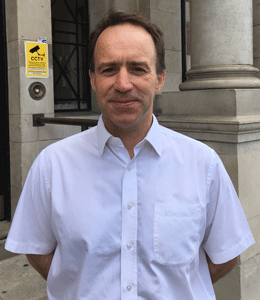
27 June 2018
A recent study has helped to identify four new genes thought to be linked to heritable pulmonary arterial hypertension (HPAH).
HPAH is a rare condition characterised by narrowing of pulmonary arterial vessels, leading to right heart failure and increased mortality.
Women are affected more than men and the condition is usually diagnosed in adults between 30 and 60 years old. Unfortunately, there are often significant delays in diagnosis.
The research study, recently published in Nature Communications and carried out in collaboration with national pulmonary hypertension centres in the UK and Ireland, including Royal Brompton and Harefield NHS Foundation Trust, involved collecting blood samples and detailed clinical information from patients and families.
The national idiopathic and heritable cohort study was supported by both the British Heart Foundation (BHF) and the Medical Research Council (MRC). Using the latest in genetic testing, the research team was able to identify four new specific genes responsible for HPAH.
Dr John Wort, the principle investigator for the study at the Trust said;
“Despite some improvement in symptoms and survival in HPAH, there is still much work to do. In particular, we need to treat the real underlying problem: thickening of the blood vessels.
"Understanding the underlying genetic defects will help us pin-point the mechanisms that underlie these abnormalities and will help us discover new therapies. The ultimate aim will be to provide a personalised medicine approach for this devastating set of conditions.
"The results of this important study really point us in the right direction. It is also a testament to great team-work both within our Trust and nationally.”
The research was supported by Ms Rosa Da Costa, one of the team’s research coordinators, and was led by Professor Nicholas Morrell at Royal Papworth Hospital in collaboration with:
- Royal Brompton & Harefield NHS Foundation Trust
- Freeman Hospital in Newcastle
- Golden Jubilee National Hospital in Glasgow,
- Mater Hospital in Dublin
- Royal Hallamshire Hospital in Sheffield
- Great Ormond Street Hospital,
- Royal Free Hospital
- Hammersmith Hospital in London.
The story was also covered in national media including in this BBC news story.
If you would like to find out more about any of our research, please contact us.
